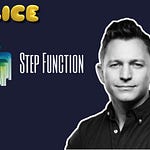Ben and Romain met in San Francisco 10 years ago, and like any good partnership origin story, they bonded over what they thought was broken. "We always thought there's something weird with the venture capital industry," they explain. "VCs, investors, mostly work at Blue Bottle Coffee, meeting with founders in real life and working on spreadsheets. We never stopped talking about the fact that probably the people who invest in tech should use a little bit of tech themselves to perform better."
Fair point... In an industry that prides itself on backing innovation, most funds operate like it's still 1995.
The duo don’t come from traditional VC backgrounds..Ben was deep in B2B SaaS and M&A at LinkedIn and Romain is running the US Office of the French Sovereign Fund, a 35B-AUM financial institution.
They weren't Ivy league MBAs with Tier 1 fund pedigrees. They were, in their words, "ETs entering that world that we want to dominate."
Together, they decided to build a venture fund that operates like a fintech company, sourcing deals through AI and making investment decisions with machine learning precision. Agatha, their sourcing and screening algorithm that processes over 8,000 founding teams annually across North American B2B companies, screening them down to about 400 worth engaging with. Most established funds see a few hundred deals per year through their networks. Blue Moon systematically evaluates 20x that volume.
"What Agatha does is that it ingests data on each co-founder, basically what experience they have, what education they have, and their personality inferred from everything that's said and written publicly," Romain explains. The output? A score from 0 to 100 predicting the chances of raising a Series B.
Why Series B? "The algorithm was trained on the fundamental question: what are the chances of that team to raise in the future at least $20 million." It's practical, you don't have to wait 10-12 years for ultimate outcomes, and there are more data points to train on.
The results speak for themselves. Four years in, they've already produced two unicorns from their 2021 vintage. They're tracking as a top 1-2% performing seed fund based on TVPI metrics.
The AI Orchestra is made up of 6 agents:
Agatha: Sourcing and screening
DaVinci: Their AI VC analyst that sits on a knowledge base of everything Mark Andreessen has ever said publicly
Raphael: AI chatbot for founders that beats ChatGPT 80% of the time
Kojak: Portfolio performance tracking
Bloomberg: Deal flow coordination with top 50 US funds
Slash: The orchestrator (named after the guitarist, because naturally both ben + romain play guitar)
"We do north of 10,000 API calls per day," they note. Most "AI-powered" funds do around 100. "2 million zaps a year."
When DaVinci analyzes a deck, it's not like dumping it into ChatGPT. "Because it's a RAG and because it sits on top of a living knowledge base that is better and improving every day, the output is just 10x, 20x, 100x better."
Most emerging managers struggle with the value-add question: how do you help 50+ companies without burning out? Blue Moon solved this from day one by outsourcing value-add services.
They pay for executive coaching (from coaches with three exits), sales coaching, and CTO mentorship programs. "Most founders tend to be from tech side product or R&D. They'll figure out sales, but if they figure it out six months faster, that's how much value you've delivered."
It's scalable because it's systematized. They have 50 companies in their portfolio and it works fine.
When we ask about competition, they're refreshingly direct: "It drives me nuts when I see articles about people that... they're using data and AI, but sometimes TechCrunch will do an article about something that we don't even think about as a feature in one of our products."
The barrier isn't technical, it's cultural. "A lot of GPs still believe, 'I've been doing this work for 20 years. I'm very good at pattern recognition.'" The irony? Machine learning is all about pattern recognition.
Most established funds can't change their processes because "the analysts and principals are like, 'I don't want to be replaced.' So I'm opposing this tool."
Now going into fund II, they have raised the bar of selection. “Agatha spits out a score. When we started with Fund One, we looked at all the companies above the threshold. Now the threshold is really high with two unicorn founders in the portfolio”
"Over the last 60 years, venture capital at an early stage was a function of time and network," they observe. "The future is seed investing will not be a function of time and network anymore."
They're building the infrastructure for that future. Not just for themselves, but as proof of concept for the industry. They already help other VCs score their deal flow and share high-quality deal flow with top funds, building social capital in the process.
Blue Moon represents a rare combo: the foresight to see where venture is headed, the technical depth to build toward it, and now the early results to show it’s working. They’re one of the first to do it this way and while it’s still early, two unicorns in four years from a fund many once brushed off? That’s worth paying attention to.













